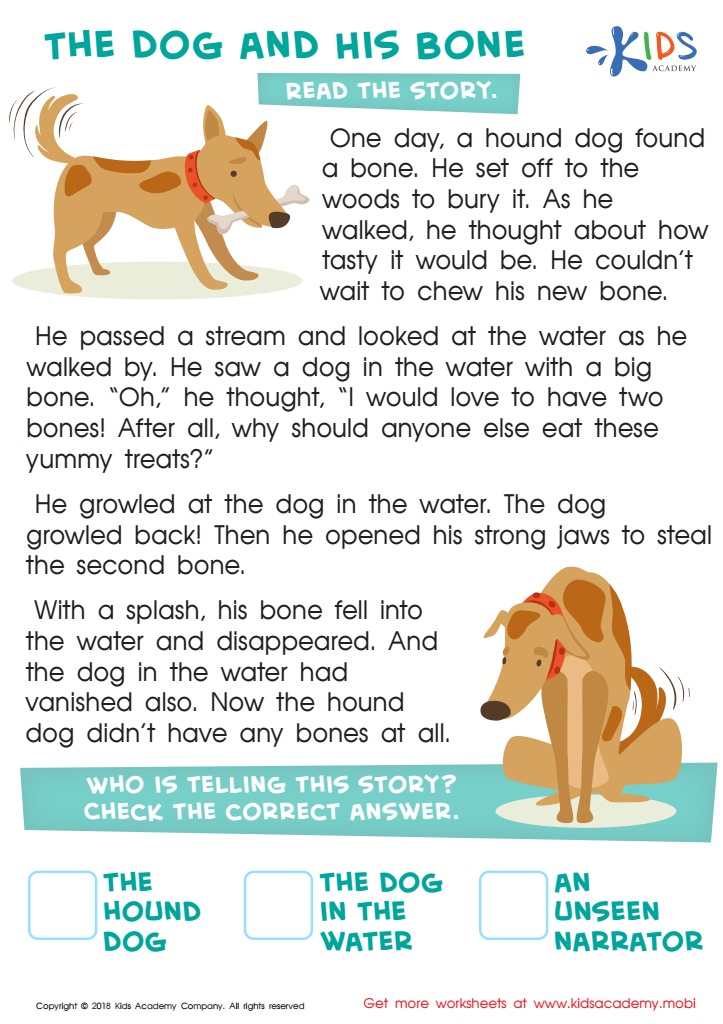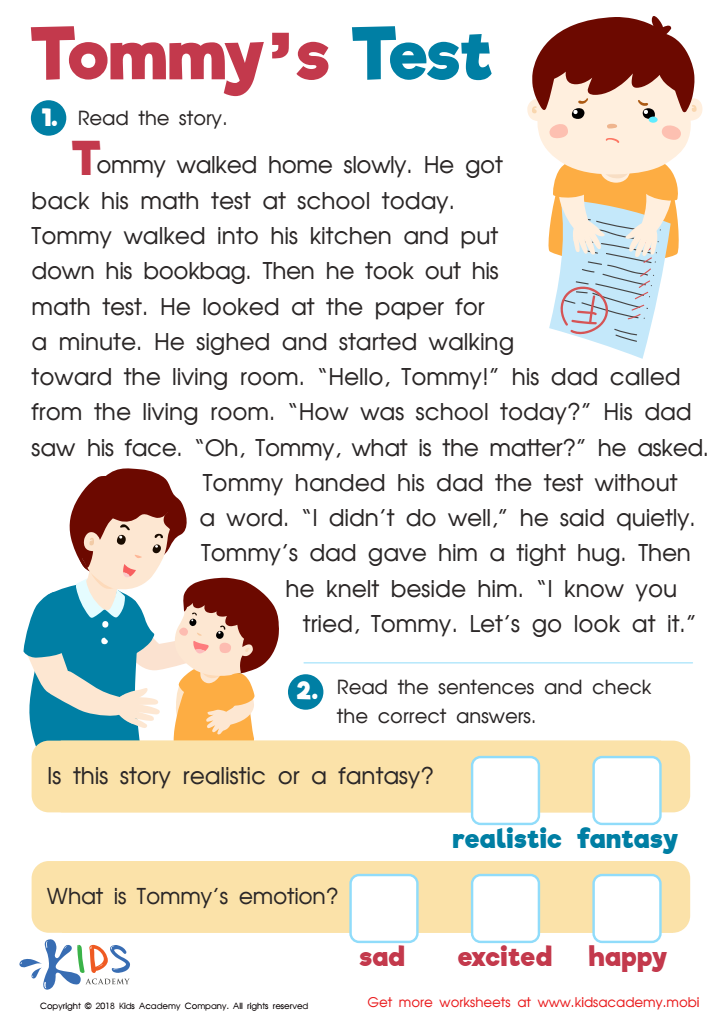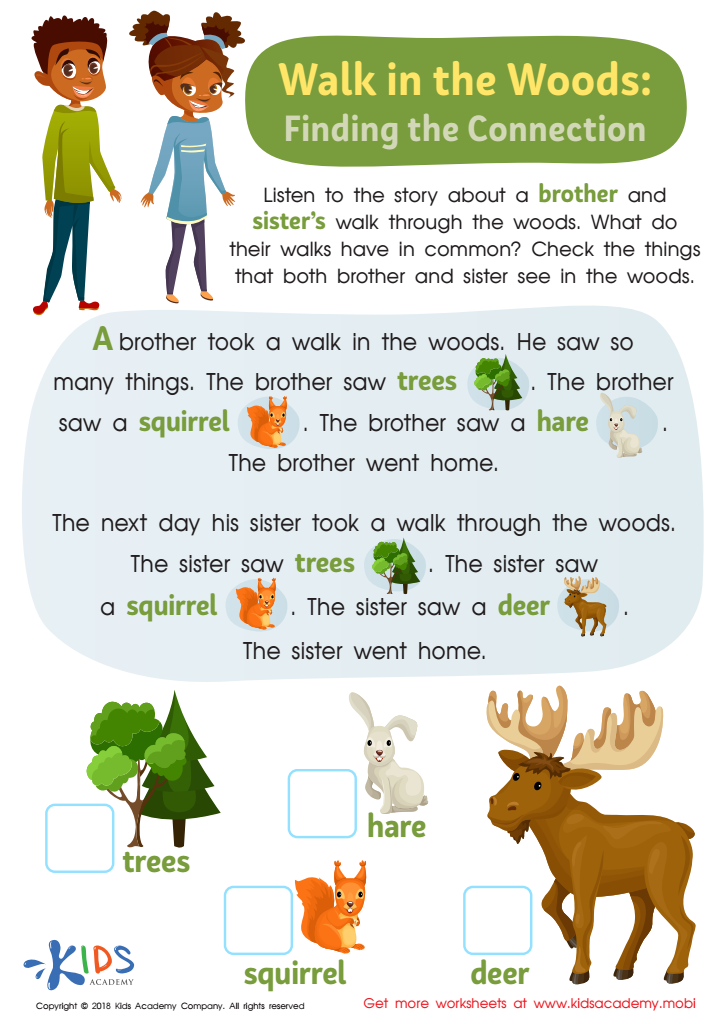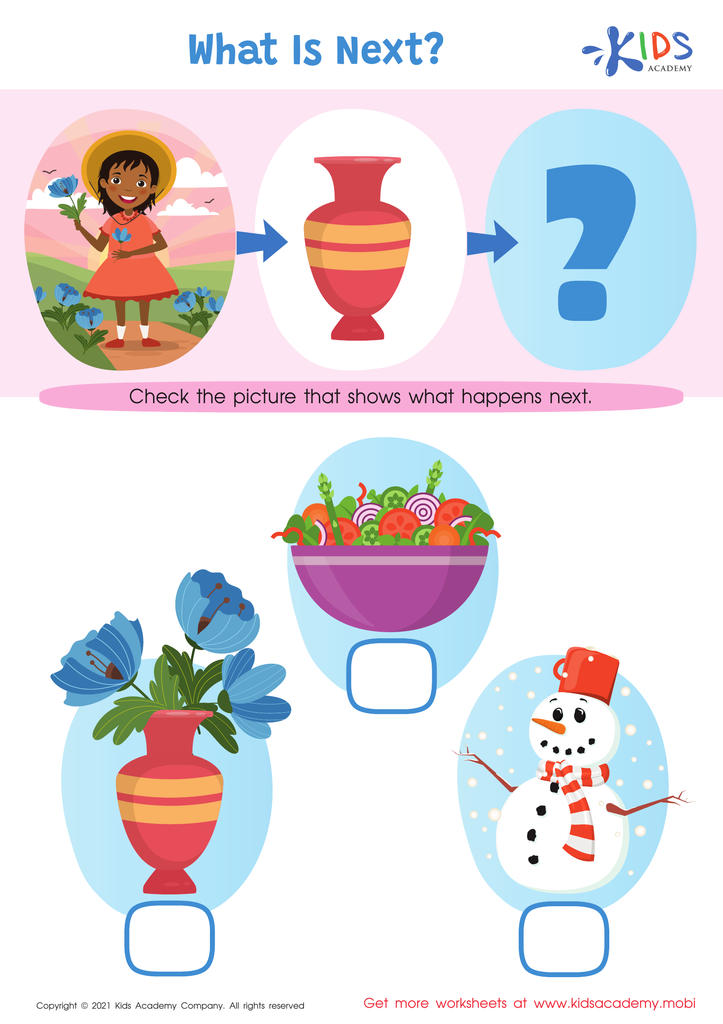Logical thinking Reading Fiction Worksheets for Ages 4-9
4 filtered results
-
From - To
Unlock the power of imagination and reasoning with our "Logical Thinking Reading Fiction Worksheets" designed for children ages 4-9! These engaging resources encourage young readers to explore stories while developing critical thinking skills. Each worksheet combines fun fiction excerpts with captivating questions, prompting kids to analyze characters, sequences, and themes. As children connect the dots and solve problems, they build logical reasoning abilities that support their overall literacy development. Ideal for classroom activities or at-home learning, our worksheets foster a love for reading while enhancing cognitive skills. Start your child's journey to becoming a thoughtful reader today!


The Dog and His Bone Worksheet


Tommys Test Worksheet


Walk In the Woods: Finding Connections Worksheet


What is Next? Worksheet
Parents and teachers should care about fostering logical thinking through reading fiction for children aged 4-9 because these skills lay the foundation for critical cognitive development. Engaging with fiction allows children to explore complex narratives, characters, and plotlines, which promotes imaginative thinking and problem-solving. As children navigate stories, they learn to predict outcomes, make connections, and infer motives, enhancing their ability to think logically.
Furthermore, reading fiction nurtures empathy and social understanding. By experiencing different perspectives, children can better grasp complex emotional dynamics, which in turn fosters better communication and relationship-building skills. This emotional intelligence is crucial for logical reasoning, as it enables children to consider various viewpoints when solving problems.
Additionally, reading fiction enhances vocabulary and language skills. A rich vocabulary provides the tools necessary for effective communication and logical expression, which is critical for academic success.
Promoting logical thinking through fiction also encourages a love for reading. When children enjoy stories, they are more likely to be engaged readers throughout their lives, which has long-lasting benefits. Therefore, prioritizing logical thinking in the context of reading fiction directly contributes to a child's holistic intellectual, emotional, and social development.

 Assign to My Students
Assign to My Students






.jpg)









